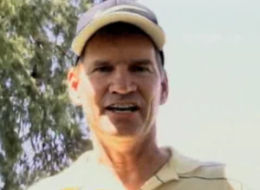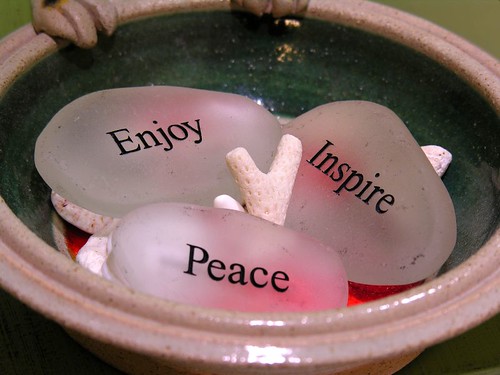
Many people know that, in addition to my day job, I drive a limousine on Saturdays, a gig I picked up during grad school and an easy way to make extra money for the "little things" (holidays, birthdays, vacations, etc.) while catching up on reading and paperwork during the inevitable waiting periods. I gas up my ride at a particular gas station in downtown Oklahoma City near our garage for a couple of reasons: it's near the interstate access point that takes me to most jobs, and it carries 100% gasoline (a requirement for our limousines per the owner; my feeling about that is irrelevant to this story). This particular gas station is located in an area that attracts a lot of destitute foot traffic. It's near several missions and not for profits, as well as the bus station.
A couple of months ago, I stopped at the gas station in a particular hurry. My limo had been left with virtually no gas (a big no-no by whoever drove it before me), and I was feeling pretty rushed due to demands from my other commitments (at the time, I was also holding down an adjunct teaching spot at a local university in addition to my day job and outside service positions). As I'm gassing up, a man approached me and asked me for money. I don't usually carry cash (for a number of reasons) and told him I didn't have anything. He started badgering me, and for the first time in a long time, I lost my cool. After discovering (by his own admission) that he was perfectly able to work, but was unwilling to do so because his time was worth more than the wages he was offered, I left him have it. As we separated and I drove off to my job, I felt like the biggest hypocrite in the world. I tend to be a pretty vocal supporter of the less fortunate, but I got my comeuppance that day.
Last month, I visited several OKC service organizations as part of Social Services Day with Leadership OKC. It's absolutely amazing the levels of support that exist to help people in my city, and I left feeling so hopeful. One of the things I took away from the day, as a gift from the Homeless Alliance, was a book of vouchers to share with those who panhandle on the street. The vouchers provide them with bus fare to three different shelters, where they can get the help they need. I used one Friday night, and the man accepted it. Later that night at the gas station, I saw the same man trying to panhandle someone else and then get "shooed" away by a police officer (the city's frontline intervention system with the indigent population; they're truly heroes in every sense of the word for the thankless work they perform day in and day out).
On Saturday, back at the same gas station, another man approached me looking for money. I gave him a voucher, but he continued to ask for money (I believe there was a language barrier as well), even showing me his hospital bracelet with a recent release date with his blood-stained fingers. After I reiterated his need to go to the mission, where they were equipped to help, he then moved on to another car sitting at the pump across from me. As the man began his pitch again, I heard the driver tell him that he had run out of gas, and didn't have money for himself. I shouted to the driver not to give anything, as I'd already given the panhandler his "ticket". The driver said thanks, and the panhandler left in search of green pastures (or at least somewhere I wasn't). I looked back over at the other car, and saw that the driver had buried his head in his hands and started crying. A young boy (my best guess was seven years old) was in the car watching with a worried look on his face.
I walked over and asked the man if I heard correctly that he'd run out of gas. He said yes, that the last two weeks had been pretty bad and he was trying to get his son back to his mother in Duncan. I asked if he'd let me buy him some gas, and he said yes, I'd appreciate it. I went inside the gas station and paid for what I thought was enough gas to get him where he needed to go. As I was inside, the man came in with the little boy to go to the restroom. When he came out, I told him that the gas was purchased. He thanked me and started to cry again. I asked the two of them if they were hungry, and the man responded that he'd bought the boy some food earlier with the four dollars that he'd had.
As we walked out to our cars, the man told me that he'd discovered earlier that he had a tumor on his prostate, and had been notified this week that it was cancerous. He'd persuaded the boy's mother to let them spend the weekend together, and he was trying to get the boy home. I wished him a safe trip, and heard him extend me a blessing and a "Merry Christmas." I got in the limo, and watched as the father and son clung to each other as he started pumping the gas into his beat-up sedan. I drove away, hoping for the best but not knowing what the future would hold for the indigent, the father, or the little boy.
The reason I tell you this story is the same reason that I love downtown and the streets. It keeps me connected with my humanity and the concepts of Grace and Redemption. There's probably not a lot of difference between the indigent and the father. There's also not a lot of difference between me and you and the other two. Whether you believe in Christmas, Jesus, the Flying Spaghetti Monster, or absolutely nothing, believe in this: there are people who hurt everywhere we look. Some have damaged themselves, and some simply draw a difficult hand from Fate. It's not our place to judge, but merely to show Love in a conscientious and compassionate manner. Let somebody else judge whether the recipients are deserving. Give what you can, even if it's only a kind word, a wise suggestion, or merely respect to a fellow human being. Just don't ignore the world outside.
I'm not blessed because I'm not in their situation. I'm blessed because I met them and tried to show them that they were loved, no matter what. In doing so, hopefully I remind myself of the same point.


